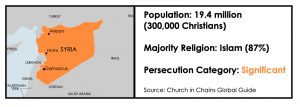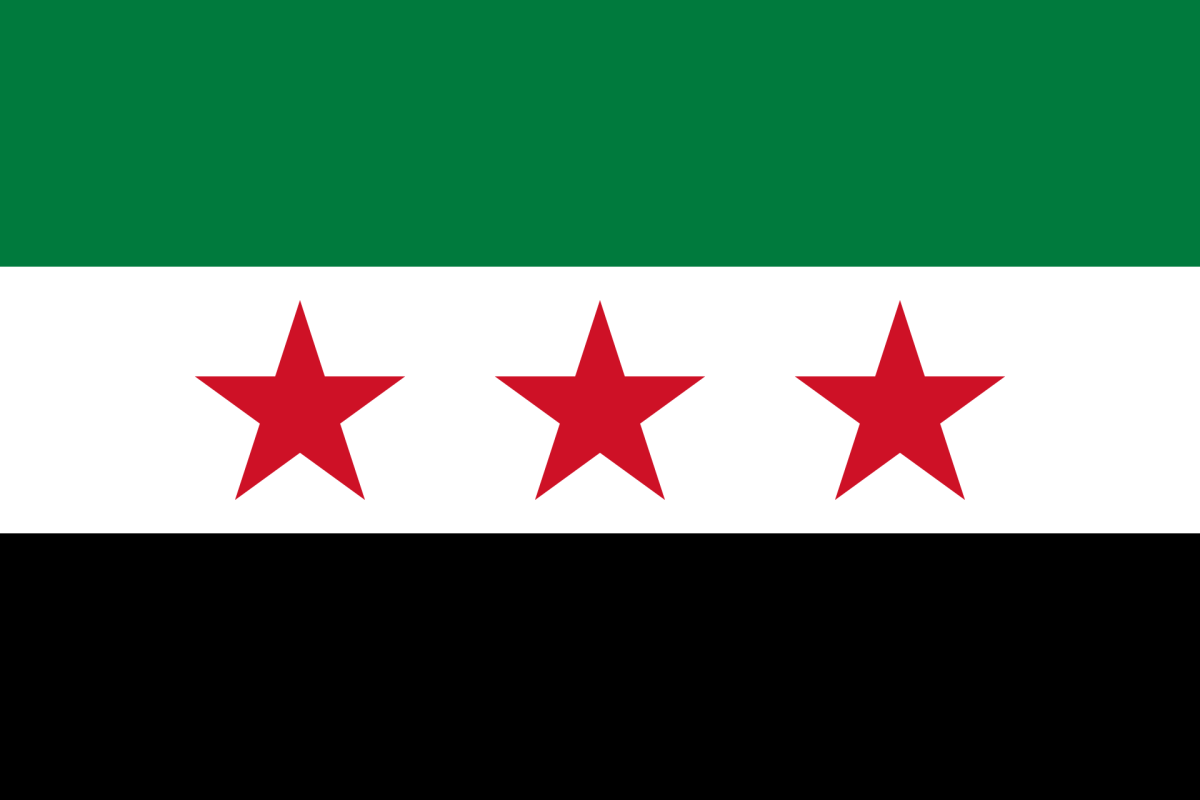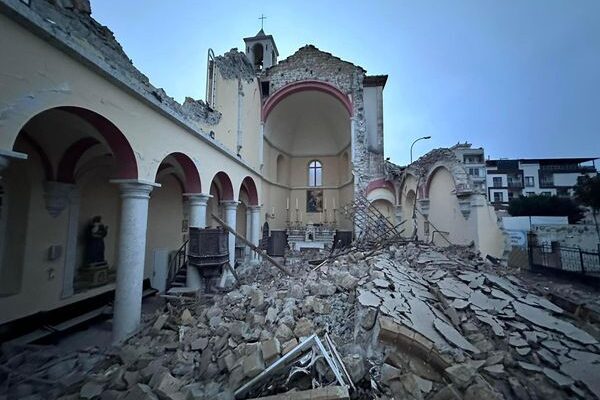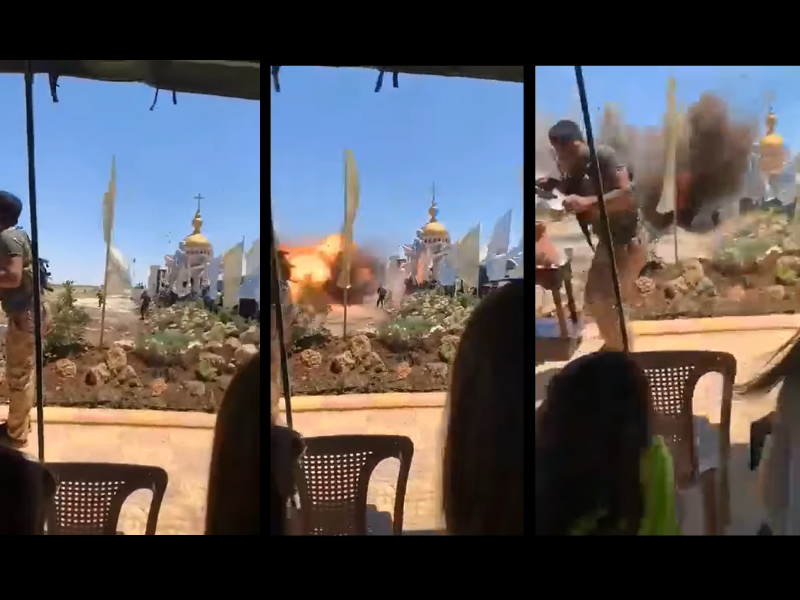
The majority of Syria’s Muslim population is Sunni, but the former ruling Assad family and supporters are Alawites, members of a Shi’ite sect that makes up only 12% of Syria’s population, and Alawites are influential in the army and government.
Syria’s long-running civil war, which erupted in 2011, turned into an effective stalemate from 2020, with President Bashar al-Assad’s government holding about seventy per cent of the country, Kurdish forces in control of the northeast and Turkish-backed Islamist forces in charge of parts of the north and northwest. Since the civil war began up to 600,000 people have been killed and almost 14 million displaced, including over one million Christians. Half are internally displaced within Syria and half are outside, mainly in Lebanon, Jordan and Turkey.
The civil war grew out of the 2011 Arab Spring protest movement, when Syrians began to protest against President Assad’s Baath Party government and to demand the release of political prisoners. In March 2011 troops were ordered to fire on protestors and the ensuing unrest led to the development of an armed opposition that grew into a coalition of rebels trying to overthrow the government. By December 2015 Islamic State terrorists held an area extending from eastern Syria to western Iraq.
The Syrian Democratic Forces declared territorial defeat of Islamic State in March 2019 after retaking its territory, but the caliphate left a legacy of instability, ruined infrastructure, food shortages and unemployment. Pockets of IS fighters remained a threat and the situation has been particularly unstable in northern Syria, which was invaded by Turkish troops in October 2019.
Assad regime overthrown
In December 2024 the Assad regime was overthrown by a rebel coalition led by jihadist group Hay’at Tahrir al-Sham (HTS, the Sunni Islamist Organisation for the Liberation of the Levant). Following the sudden capture of Aleppo on 29 November, swiftly followed by Hama and Homs, Damascus was taken on 8 December and President Assad fled the country he had led for 24 years, following his father’s rule of nearly thirty years.
HTS originated in 2011 under the name Jabhat al-Nusra and became affiliated to al-Qaeda, but it cut ties in 2016 and renamed itself in 2017, merging with other rebel groups and operating from a powerbase in the northwestern province of Idlib, which it controlled. HTS has been designated a terrorist organisation by the UN, the EU and many countries, but its leader Ahmed al-Sharaa (formerly known by the nom de guerre Abu Mohammad al-Jolani) has presented himself as relatively moderate and has committed to tolerance and a rejection of violence, claiming that Christians and other religious minorities including Druzes and Alawites (Muslim minority sects that Sunni jihadists consider heretical) have no need to fear and will live safely under its rule.
Christians in Syria
The Syrian church dates back to New Testament times and before the civil war Syria was one of the safest places in the Arab world to be a Christian, with a population of at least 1.5 Christians. While there was some discrimination (for instance in connection with housing and employment) and some emigration, Syrian Christians enjoyed relative freedom and stability, were prosperous, had good relations with Muslims and were respected in society. They were allowed to worship and practise their faith without much official interference and although meetings were monitored Christian literature was freely available. The Christian population was concentrated in cities, especially Damascus, and consisted mainly of Orthodox and Catholic Christians, with a small Protestant church.
During the civil war, Christians were particularly affected in areas under the control of extremist Islamists who viewed them as an obstacle to a Sharia-governed country. In these areas, widespread violence included attacks on Christians, their property and church buildings, and many Christians were kidnapped for ransom. Christians living under government control or in the Kurdish-controlled region enjoyed relative freedom – especially Orthodox and Catholic – although the small Evangelical population has faced some suspicions and restrictions.
The vast majority of Christians fled the Islamist-controlled area, where most church buildings were demolished or taken over, and almost the entire Christian population of some cities fled. Syria’s second city Aleppo, on the front line of fighting between the government, rebel forces and Islamic State for much of the war, had one of the largest pre-war Christian populations in Syria, but it dropped from 250,000 to fewer than 40,000 Christians. The Christian population of Homs, a city particularly badly affected by the war, declined from at least 60,000 to fewer than 1,000.
Why were Christians targeted in the civil war?
Christians were targeted by Islamist opposition factions that wanted Syria to become a Sunni Muslim state, notably Jabhat Fatah al Sham, the al-Qaeda offshoot previously known as Jabhat al-Nusra or Nusra Front. Such extremists adopted the slogan “Alawites to the tomb and Christians to Beirut”.
Christians were widely believed by the opposition to be supporters of President Assad, since they enjoyed relative freedom and security under the rule of the secular Baath party. It and other secular parties suppressed the Muslim Brotherhood and the more radical Salafists. The belief that Christians were pro-government meant they were very vulnerable in areas controlled by opposition groups. Furthermore, many radical fundamentalists come from poor rural communities and urban slums and targeted Christians because of their perceived prosperity.
(Barnabas Aid, BBC, Christian Post, Christian Solidarity International, Irish Times, Middle East Concern, Morning Star News, Open Doors, Operation World, Reuters, RTE, Sat-7, Tear Fund, UN, Voice of the Martyrs Canada, World Watch List, World Watch Monitor)
Church in Chains in Action
During the civil war period, Church in Chains supported a number of aid projects working with partner organisations including Barnabas Fund (providing aid to displaced Christians within the country), Asia Link (providing for the needs of Syrian Christian refugees in neighbouring countries) and Team Hope (supporting a Christian doctor ministering in Aleppo).
SYRIA: Interim leader promises religious freedom

“Precisely because we are Islamic, we will guarantee the rights of all people and all sects in Syria.”
TURKEY/SYRIA: Christians among those suffering from earthquake

Calls for prayer for all involved in the aid effort
SYRIA: Two killed in drone attack during church inauguration

Two people were killed and twelve were injured in a drone attack during the opening ceremony of a new church building on Sunday 24 July
